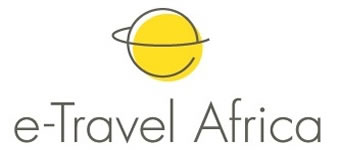Rich in lush equatorial habitat as well as in oil and mineral reserves, the Republic of Gabon has been compared to the Garden of Eden. The country’s unspoilt rainforests and savannas have until recently been known only to a select few. Gabon is a former French colony and is situated on the West coast of Africa, on the equator.
Gabon has enormous oil reserves which, combined with a relatively small population of just under 1.5 million have made it one of the richest African countries. Realising the need to protect their environment and population, the Gabonese government has made a firm commitment to developing sensitive ecotourism, through a range of programmes. President Omar Bongo Ondimba created 13 protected national parks in 2002 which cover a huge area, over 11% of Gabon’s entire land.
The natural environment
The extensive coastal plains and dense rainforests play a vital role in the earth’s ecosystem and are populated with gorillas, chimpanzees, elephants and myriad species of birds. Around 80% of Gabon is uninhabited rainforest, untouched by man, and most of the population is in the towns and cities. As well as the large numbers of elephants, gorillas, chimpanzees and exotic birds, this is home to hundreds of orchids and other plant species, and humpback whales. The terrain includes mountain ranges, flat plains and mangrove swamps. Like Eden, this is a living environment which takes you back to the beginning of time itself.
Things to see and do
The National Parks
The National Parks are the main attraction for eco tourists, and Loango is the most popular, offering the widest choice of tours and accommodation. It covers 1550km of coastal territory, including mangrove swamps, savanna and forest. Part of the environmentally important Iguela Lagoon is also within the park.
Another protected area to visit is the breathtaking volcanic region of Plateaux Batéké along the Congo border – a natural sanctuary for gorillas and many other wild animals. Lopé is an area of lush pre-historic rainforest in the centre of the country, teeming with wildlife and excellent for trekking on foot or on the river.
Lambaréné
Visit Lambaréné, a town made famous by Doctor Albert Schweitzer, the tropical disease specialist and musician. A part of Albert Schweitzer Hospital is open to it has been made into a museum.
Beaches and water sports
Chill out at some of the beaches on the Atlantic coast. Pointe Denis and Ekwata beach in the North, Sette Camare in the South are peaceful and very quiet. Port Gentil and Libreville have beaches with facilities for waterskiing and other watersports.
Mayumba in the south and Cap Estérias, near Libreville, are popular watersports centres at weekends. Pointe Denis both offer good skin-diving and kayaking.
Cathedral of St Michael
Visit the Cathedral of St Michael in Libreville, which is famous because of its 31 peculiar wooden columns.
They were carved by a blind Gabonese craftsman, each of the columns depicting a Biblical scene.
Where to stay
Once an unknown destination, Gabon is still developing and the emphasis is on nature and sustainability rather than excessive luxury. All eco lodges practise water recycling and local community involvement, and several research and conservation camps are open to visitors.
In the Lopé National Park, the Lopé Hotel is a comparatively luxurious eco lodge, with en-suite bathrooms, air conditioning and a pool, all in an idyllic riverside location. If you are staying in Libreville, a swish hotel such as Le Meridien Re-Ndama is worth splashing out on.
Getting there and around
There are many airlines serving the country, including Air France, Lufthansa and South African Airways, as well as Air Gabon. However, no flights go direct from the UK. Once you have arrived at one of Gabon’s five airports, it is best to rent a 4×4 vehicle to get around the country as many locations are inaccessible by air or by boat. There are good taxi services for travelling around the cities.
Travel tips
The currency used in the country is the CFA franc, common to most of the former French colonies and there is a fixed exchange rate of 1 euro = 655 CFA francs. Be aware that the climate is tropical monsoon, and don’t forget to take mosquito repellent and anti-malaria medication.









